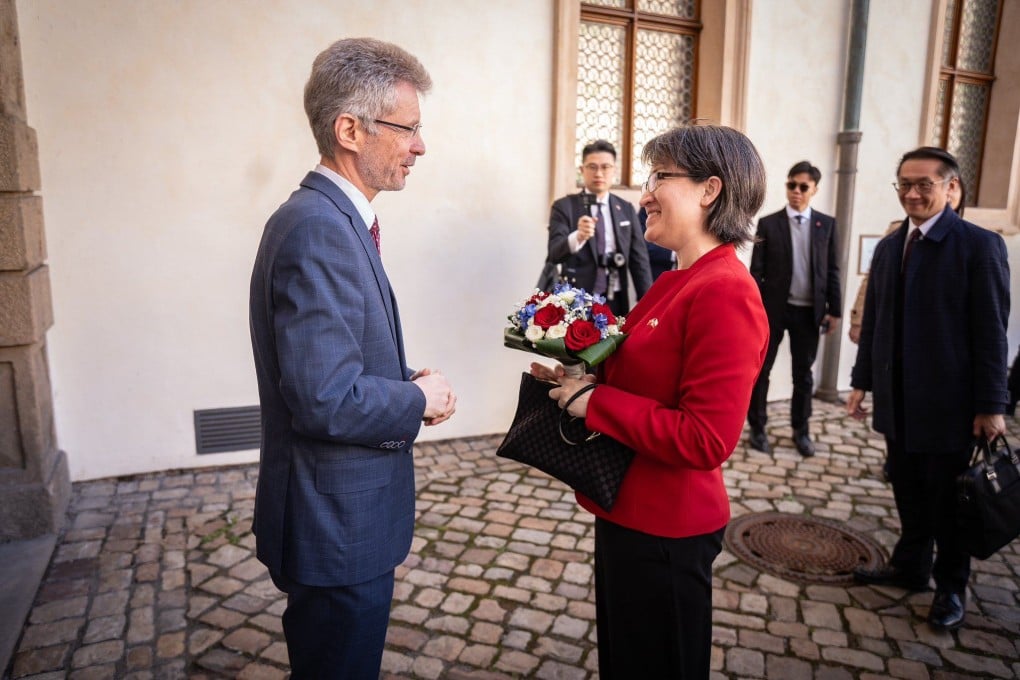Taiwan’s vice-president-elect Hsiao Bi-khim courts mainland China’s wrath with visit to Czech Republic
- Beijing warns Prague to stick by its promise to recognise Taiwan as an ‘inseparable part of China’ and ‘severely restrain’ Czech politicians
- Taipei confirms the trip, saying Hsiao is there to ‘meet friends’ and ‘exchange views’ after the senate president posts pictures of her visit online

The foreign ministry in Taipei confirmed on Tuesday that Hsiao, who will be inaugurated on May 20, is in the central European country, saying she was there to “meet friends” and “exchange views”.
Lin Jian, a spokesman for Beijing’s foreign ministry, reacted by saying “the Chinese side firmly opposes any form of official exchanges” between Taiwan and countries that have diplomatic relations with mainland China.
He told a scheduled press conference that the Czech government had recognised that “Taiwan is an inseparable part of China” in various official agreements.
He warned Prague to keep its promise by “severely restraining certain individual politicians” and “take effective measures to remove the negative influence of the incident”.
Hsiao was invited by Sinopsis, a Prague-based think tank, to “deliver a speech”, according to Jeff Liu, a spokesman for Taiwan’s foreign ministry.